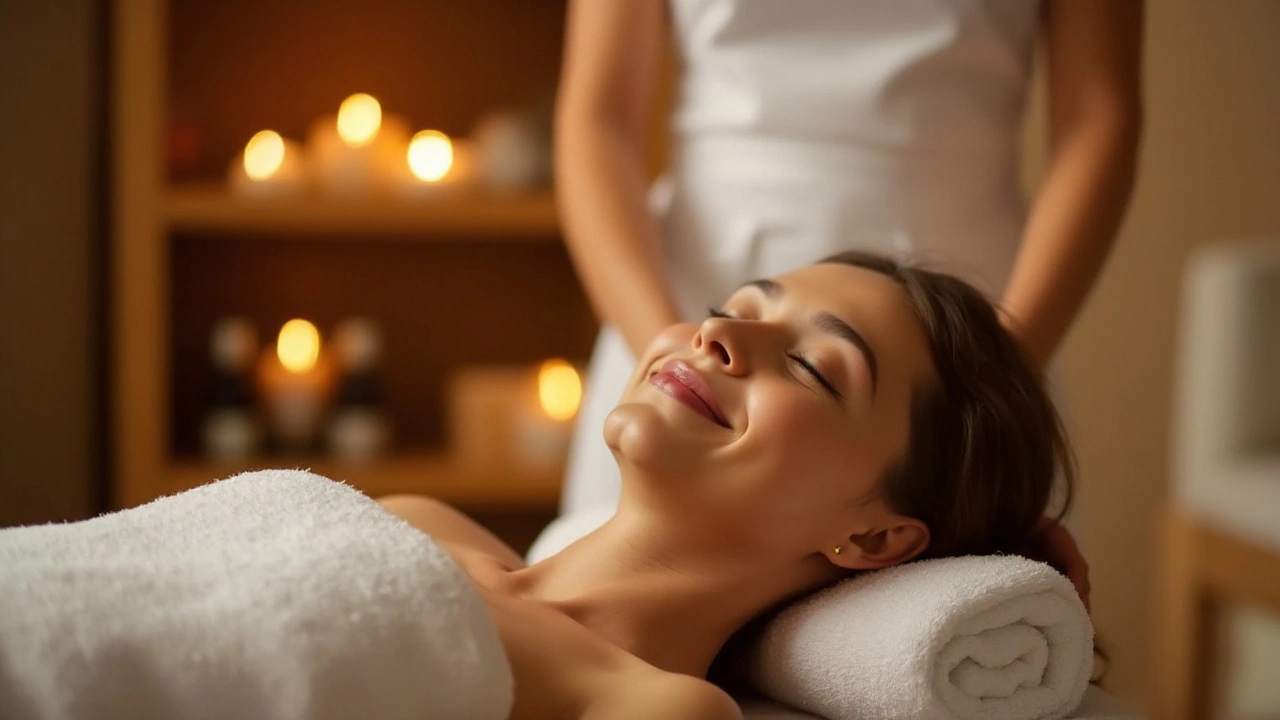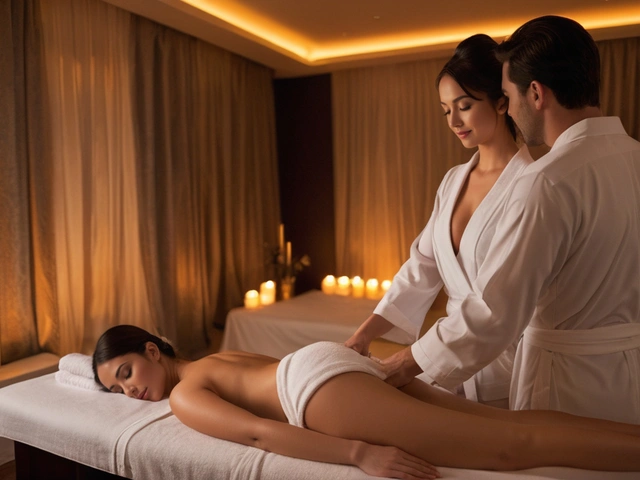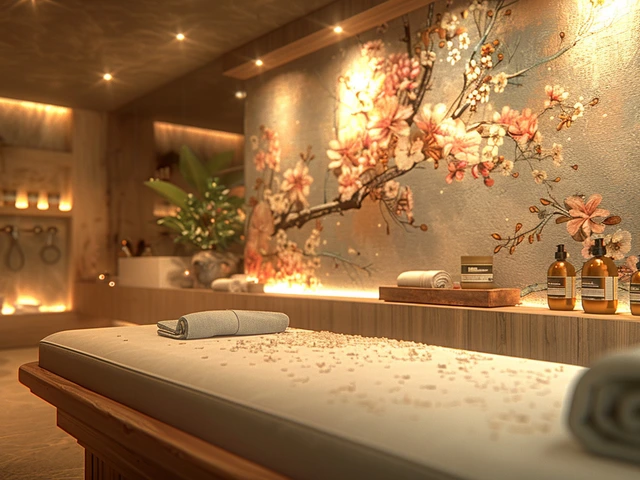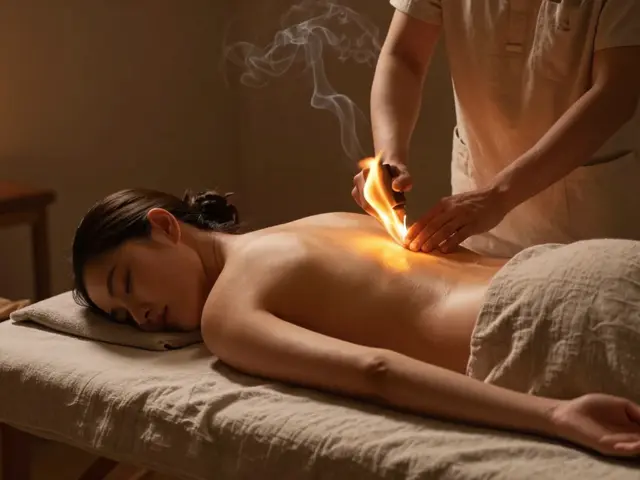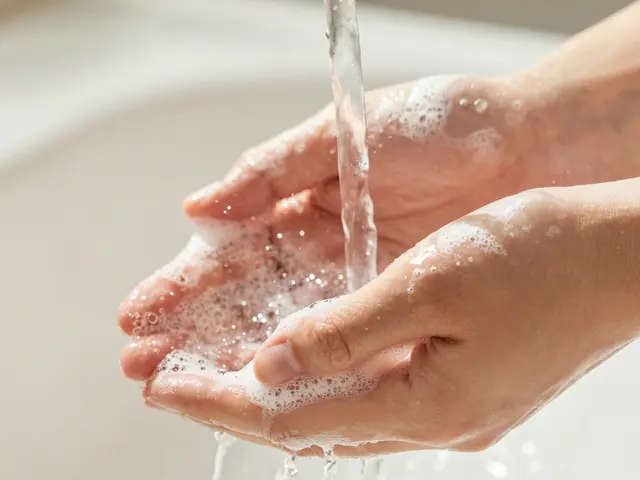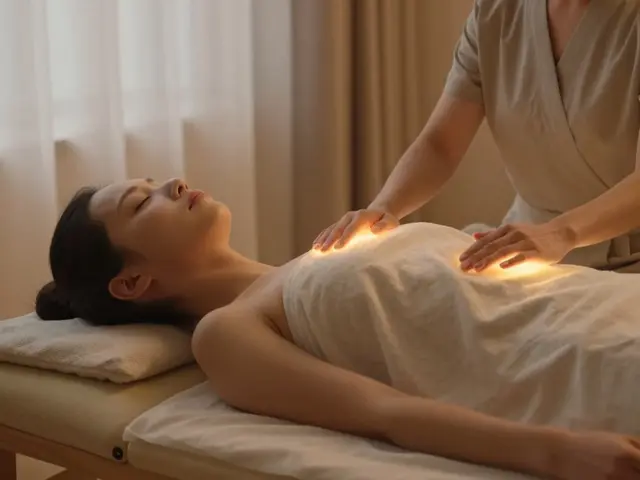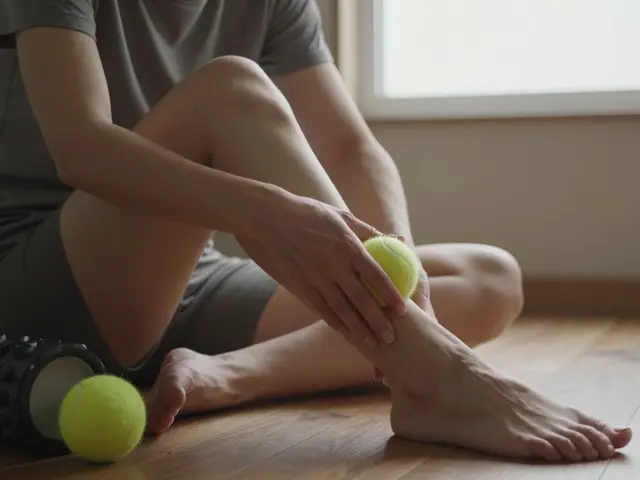The concept of happy ending massages often raises eyebrows and stirs curiosity. But beyond the initial perception lies a range of mental health benefits that many are unaware of.
Happy ending massages don't just aim to provide physical relaxation; they also offer significant psychological advantages. From reducing anxiety to improving mood, the benefits are numerous and impactful.
One key element is the way these massages promote relaxation. By focusing on both physical and emotional aspects, happy ending massages can reduce tension and lead to a calmer state of mind.
If you're considering this form of therapy for the first time, it's important to know what to expect. Awareness and preparation can make the experience more fulfilling and beneficial.
Understanding the Concept
The idea of a happy ending massage goes beyond the immediate reaction it elicits. It encompasses a rich history and a unique blend of physical and emotional relief. This practice is rooted in the centuries-old tradition of therapeutic massage, enhanced with the goal of achieving ultimate relaxation and emotional release. Whether seen as controversial or simply a form of indulgence, the concept fundamentally aims to improve the individual’s well-being.
At its core, a happy ending massage integrates traditional massage techniques with a culmination that is specifically designed to release pent-up stress and tension. This final phase often involves intimate contact, which can be instrumental in achieving deeper mental relaxation. It's essential to understand that the practice is not just about physical gratification. Instead, it’s a holistic approach that incorporates emotional well-being and stress relief.
Many people seek out happy ending massages not just for physical pleasure, but for the psychological benefits that come with it. Studies have shown that touch therapy, an element deeply embedded in these massages, positively impacts mood and reduces anxiety levels. For instance, according to a report by the American Psychological Association, physical touch can trigger the release of hormones like oxytocin and serotonin, which are known to elevate mood and promote relaxation.
“Physical touch, when done respectfully and consensually, can be a powerful tool for reducing stress and improving mental health” - American Psychological Association.
Understanding the ethical considerations surrounding happy ending massages is also crucial. Consent and respect are fundamental principles. These massages must be performed by trained professionals who prioritize the client’s comfort and boundaries. It’s a deeply personal experience and must be approached with sensitivity and care.
The Origins and Evolution
Happy ending massages didn't just appear overnight; they are an evolution of traditional practices. In many Eastern cultures, such practices were believed to balance one's life energy or 'chi', thus fostering both physical and mental health. Over time, the Western adoption of these practices introduced more structured approaches, ensuring that the emotional and psychological well-being of the client remained the focus.An essential thing to note is that this form of massage therapy is not legal in all jurisdictions, and it’s regulated differently around the world. Far from just a spa treatment, it has evolved into a specialized service that requires professional training and ethical practice. If you're considering trying this type of massage, it's important to do your homework, ensuring the provider is reputable and trained.
Lastly, the societal perception of happy ending massages is shifting. As more people become aware of the genuine mental health benefits, the stigma around it is gradually diminishing. People are beginning to recognize it as a valid form of therapy that can play a crucial role in overall wellness.

How It Promotes Relaxation
Happy ending massages go beyond simple physical pleasure; they are deeply rooted in ancient relaxation techniques. These massages engage both the body and the mind, evoking a sense of peace and tranquility that few other therapies can match. The combination of touch and intimate connection leads to the release of endorphins and oxytocin. These hormones play a crucial role in stress relief and can make you feel more connected and serene.
The process starts with a calming environment, usually featuring dim lighting, soothing music, and aromatic oils. These elements work together to create a peaceful atmosphere right from the beginning. This initial sensory engagement is the first step towards achieving relaxation. When the masseuse begins, their skilled techniques target muscle tension and stress points, helping to alleviate physical discomfort while also easing mental stress.
Studies have shown that massages can lower cortisol levels, the hormone responsible for stress. In one study conducted by the Touch Research Institute at the University of Miami, participants experienced a 31% reduction in cortisol levels after a massage session. Less cortisol means less stress and anxiety, which significantly enhances mental well-being. The gentle, caring touch can also produce a meditative state, making it easier to let go of worries.
According to Dr. Tiffany Field, director of the Touch Research Institute, 'Massage therapy decreases pain, depression, and anxiety. It’s an excellent way to relieve stress and improve overall health.' This highlights how effective such therapies can be in improving mental health.
Another aspect to consider is the element of trust involved in a happy ending massage. Trusting your masseuse can lead to a deeper state of relaxation, as you allow yourself to be vulnerable in a safe, respectful environment. This sense of security can significantly contribute to emotional relief, helping you feel more at ease and mentally balanced.
Sometimes, the physical touch involved in these massages can stimulate the vagus nerve. The vagus nerve plays a significant role in controlling the parasympathetic nervous system, which is responsible for rest and digestion. Activation of this nerve can lead to a slower heart rate and a sense of calm, making relaxation almost inevitable. This makes these massages incredibly effective for people who suffer from high levels of stress or anxiety.
Beyond mental relaxation, happy ending massages also contribute to improved mood. The release of serotonin and dopamine, often referred to as the 'happy hormones,' can elevate your spirits and leave you feeling content long after the session is over. This hormonal balance can be a natural remedy for those struggling with mood disorders or simply looking to lift their emotional state.
So, if you're considering this therapy to unwind, you now know it’s not just about physical pleasure. It's a comprehensive treatment that targets both your mind and body, leaving you relaxed and happier in the process.

Tips for First-Timers
Thinking about trying a happy ending massage for the first time can be exciting and nerve-wracking at the same time. It's important to approach this experience with an open mind and some background knowledge.
First, do your research. Not all massage therapists offer this type of service, so it's essential to find a reputable place. Word of mouth and online reviews can be incredibly valuable. Ensure the establishment follows ethical guidelines and maintains a clean, comfortable environment. A good massage parlor will prioritize your safety and comfort.
Communication is key. Be upfront about your expectations and any concerns you might have. The therapist will likely discuss boundaries and consent with you. Clearly communicating your comfort levels can result in a more enjoyable and stress-free experience.
Another important factor is relaxation. Before your appointment, make an effort to unwind. Consider activities like a warm bath, some light exercise, or meditation. Arriving in a relaxed state can enhance the benefits of the massage and make the entire session more enjoyable.
Stress relief is one of the significant advantages of this type of massage. According to a study in the Journal of Clinical Psychology, physical touch can lower levels of cortisol, the stress hormone. Lower stress levels can improve mood and promote a sense of wellbeing. Knowing this, you might approach your session with a bit more ease and anticipation of its benefits.
If you're still feeling hesitant, it might help to talk to someone who has already had the experience. They can offer insights and reassure you. Every individual's experience is unique, but learning from others' stories can provide a sense of what to expect.
In the words of Dr. John Grohol, founder of PsychCentral.com, “Human touch has therapeutic benefits that can positively impact mental health, lowering stress levels and enhancing overall mood.”
Knowing the etiquette can also be incredibly helpful. Generally, it's polite to arrive at least 10 minutes early. This gives you time to fill out any necessary forms and discuss any last-minute details with the therapist. Turning off your phone or putting it on silent is also a good idea to ensure there are no interruptions during your session.
Lastly, don’t forget to follow up on self-care afterward. Hydrate well to help your body flush out toxins released during the massage. Light stretching or a gentle walk can help maintain the relaxed state achieved during the session. Reflect on your experience, jotting down any feelings or thoughts you had immediately after. This can help you gauge the benefits and decide whether you'd like to continue with this form of therapy.

